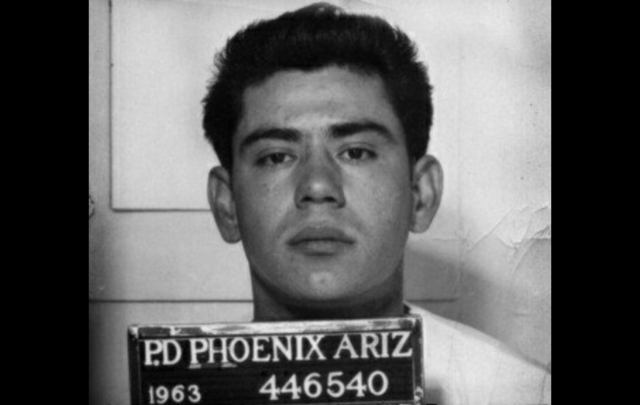[ad_1]

Share and speak up for justice, law & order…
By Chief Joel F. Shults, Ed.D
One of the guilty pleasures in my early days working in the same college town where I was a young officer was arresting criminal justice students. There was something about having taken a few classes that made many of them have the confidence of a seasoned attorney. More than one would smugly state that any charges will be dropped because I didn’t read them their rights. Surprise! I don’t have to!
I have nothing against criminal justice students, having spent many years as one myself and many years teaching since. The problem was that many of these young citizens learned more from television and movies than anywhere else, something they had in common with most Americans.
The myth that any contact or arrest by a police officer must be immediately accompanied by an advisement of their Constitutional rights per Miranda comes from many a dramatic scene where these rights are being recited in the middle of a struggle with a fictional suspect on our favorite cop show. To be sure, many officers will spontaneously recite the Miranda warning as soon as practical to avoid being accused of getting an unlawful confession, but it isn’t necessary unless it meets the requirement that arose from the Miranda case (Miranda v. Arizona, 384 U.S. 436 (1966), which was part of a cluster of cases that reached the U.S. Supreme Court regarding the 5th and 6th amendments.
The era of the Supreme Court under Chief Justice Earl Warren entertained cases that expanded the understanding of Constitutional rights as the 14th Amendment was finally being applied in criminal justice matters. The core issue of these cases was to keep law enforcement from coercing confessions from suspects while they were kept from getting legal counsel. Just a few years earlier, the Court had decided in Gideon V. Wainwright that the right to an attorney meant little unless the government provided such counsel to those who could not afford one.
The Miranda ruling did not precisely prescribe what the warning would look like but did give instructions on what such warnings must contain. The standard Miranda rights advisement evolved and was endorsed in subsequent cases.
The insistence of the Founders on prohibiting government abuse of its citizens was based on their knowledge of history. Coerced confessions through torture was common in the world, as were secret trials and summary punishment. In throwing off the oppression of their European predecessors, the authors of the Bill of Rights wanted to ensure that persons accused of crimes would be free from torture, had public trials, the oversite of objective magistrates, and access to advocates on their behalf to ensure due process and counter the power of the government. The 5th and 6th Amendments addressed these vital concerns, along with rules for searches and due process.
These Warren era court decisions changed law enforcement that had long operated free from federal concerns. The Exclusionary Rule was now employed and ruled that evidence that violated Constitutional standards could no longer be used at trial. These changes gave rise to claims that criminals were being let go on legal technicalities and eventually gave rise to a new emphasis on victim’s rights as well.
The new caution exercised by police officers in protecting suspect rights and ensuring that evidence collected would be useable at trial resulted in the common portrayal of police immediately reading from the ubiquitous Miranda cards on every arrest (we are taught Some departments were so cautious that warnings were given even to witnesses. It became a standard component of dramatic media portrayals of suspects being told their rights between blows in a fight or while applying handcuffs.
In real life, Miranda applies only to persons who are in custody (not free to leave), and to questions that are guilt-seeking. It does not include general on the scene inquiries, answers to standard booking questions, or spontaneous voluntary statements. My criminal justice arrestees don’t get a free pass just because I didn’t whip out the card. Refer to your Intro to Justice class, not TV cop shows.
This article originally appeared at the National Police Association and was reprinted with permission.
Share and speak up for justice, law & order…
[ad_2]




